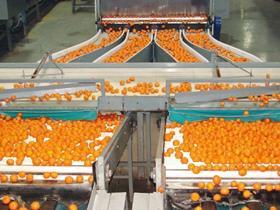
The US announced yesterday (2 October) that it would impose additional 25 per cent tariffs on certain European agricultural imports, including citrus fruit, starting on 18 October after the World Trade Organization granted the Trump administration permission to tax as much as US$7.5bn of European exports annually.
The WTO ruling comes after a long-running US complaint over EU subsidies given to the European plane maker Airbus, and is intended to allow the US to recoup some of the losses the US aeroplane manufacturer Boeing sustained because of Europe’s trade practices.
The ruling on Wednesday gives the go-ahead for the US to impose enough tariffs to block US$7.5bn in trade from Europe annually, until the two sides reach a negotiated settlement, or the organization decides that Europe is in compliance with its rules, reports said.
According to a ‘final product list’ published yesterday by the US trade department, the affected imports currently include European oranges, fresh or dried; mandarins and other similar citrus hybrids including tangerines, satsumas, clementines, wilkings, fresh or dried; clementines, fresh or dried; lemons, fresh or dried; cherries, dried, prepared or preserved; as well as fruit juices, olives, wine, pork, cheese and a raft of non-perishable products, including textiles and tools.
'For years, Europe has been providing massive subsidies to Airbus that have seriously injured the US aerospace industry and our workers,' US Trade Representative (USTR) Robert Lighthizer said in a statement yesterday.
'Finally, after 15 years of litigation, the WTO has confirmed that the United States is entitled to impose countermeasures in response to the EU’s illegal subsidies.
'Accordingly, the United States will begin applying WTO-approved tariffs on certain EU goods beginning October 18. We expect to enter into negotiations with the European Union aimed at resolving this issue in a way that will benefit American workers.'
The tariffs will be applied to 'a range of imports from EU Member States', the USTR said; although the bulk of the tariffs will be associated with products from France, Germany, Spain, and the UK.
The US has the authority to increase the tariffs at any time, or change the products affected, the USTR said.



